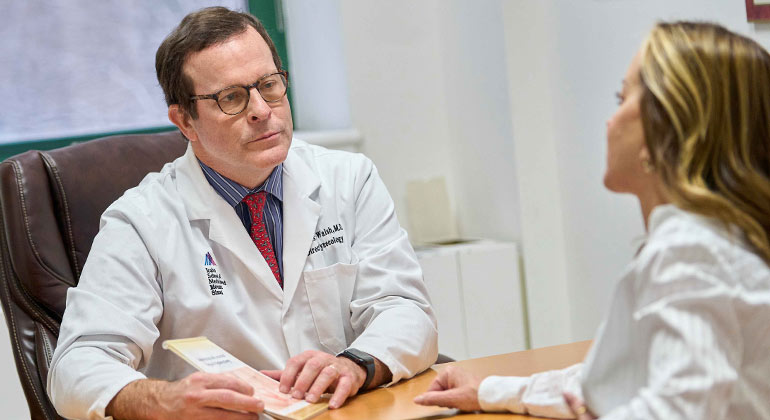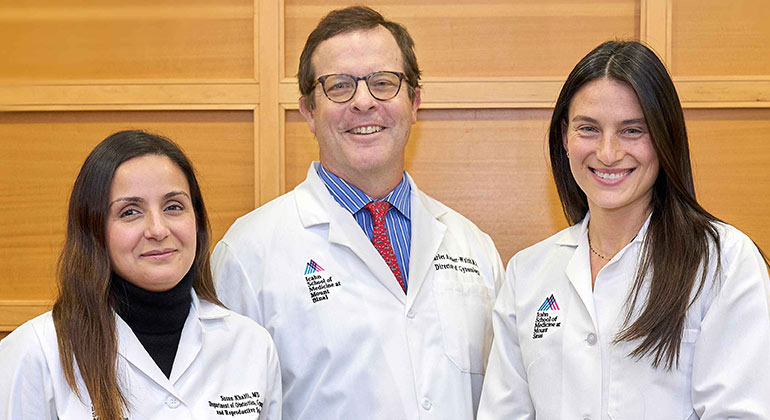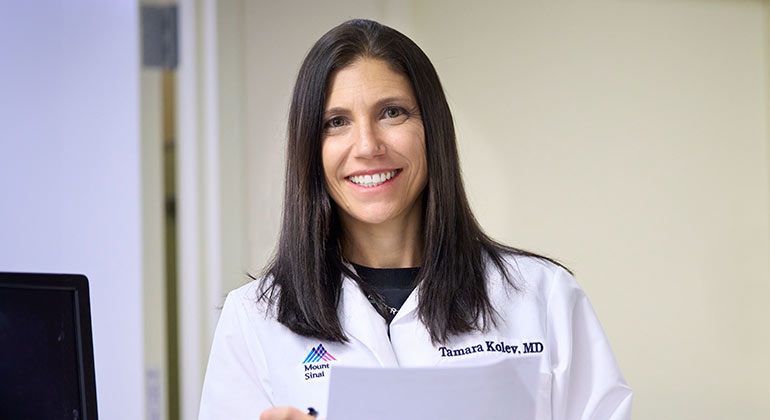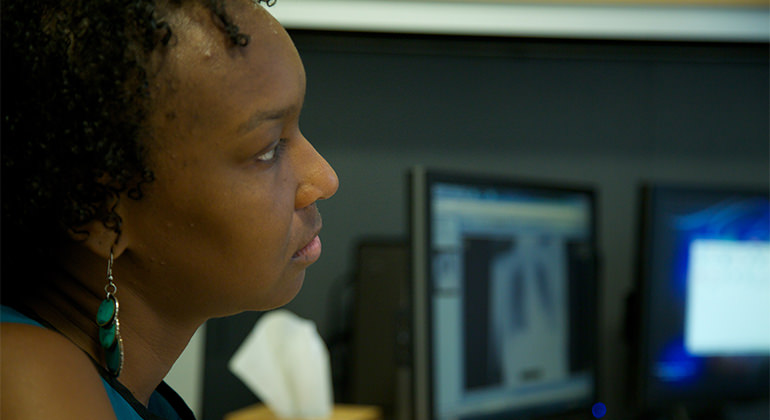Fibroid Care




Fibroid Center of New York
At Mount Sinai’s Fibroid Center of New York, we work with you to develop a personalized fibroid treatment plan. Our team of gynecologists, interventional radiologists, physical therapists, acupuncturists, and nutritionists offers safe, effective, and advanced therapies. At Mount Sinai, we strive to:
- Provide the safest and least invasive treatment to meet your needs
- Use the latest technology, including nonsurgical solutions and minimally invasive procedures
- Develop a treatment plan that is right for you
Our experts have special expertise with minimally invasive procedures. These approaches mean shorter hospital stays and recovery periods, smaller incisions, decreased scarring, and less pain.
Fibroids affect women primarily between the ages of 30 and 50 and do not always cause symptoms. If you are not having symptoms, we may only need to keep an eye on it. But if fibroids are interfering with your ability to become pregnant, or if they are causing severe menstrual periods or other uncomfortable symptoms, it is time to make an appointment with a gynecologist who specializes in this area.
What Are Fibroids?
Fibroids are noncancerous (benign) tumors of the uterus that affect women of reproductive age. Also called uterine leiomyoma or myomas, they almost never grow into cancer. They are made of muscle and connective tissue. You can have a single fibroid or many, and they can be as small as a cherry pit or as large as a watermelon. There are four types of fibroids. We use physical exams, pelvic ultrasounds, and magnetic resonance imaging to determine what type of fibroid you have. Fibroids are very common. Most women will have had at least one fibroid before age 50. By the time they reach 50, about 70 percent of white women and about 80 percent of Black women will have fibroids.
Types of Fibroids
There are four types of fibroids:
- Intramural fibroids: The most common type of fibroids, these grow within the muscle wall of the uterus. They can cause pelvic pain, excessive menstrual bleeding, and can lengthen your menstrual cycle.
- Pedunculated fibroids: These fibroids appear both inside and outside of the uterus and attach to the uterine wall with a stalk-like growth called a peduncle. These fibroids can cause pain and pressure.
- Subserosal fibroids: These fibroids start by the uterine wall and grow outward. They also can cause abdominal pressure/bloating and pain.
- Submucosal fibroids: Submucosal fibroids push into the cavity of the uterus (endometrium) as they grow. These are the type most likely to cause excessively heavy and long periods and bleeding between periods. These fibroids can reduce chances of becoming pregnant by as much as 50 percent and double the risk of miscarriage. They can also cause significant cramping during a period.
Learn about treatment options we offer.
Symptoms
Some women with fibroids never experience any symptoms. Others may find they interfere with normal daily life or make it hard to get pregnant or carry a fetus to full term. Symptoms can include:
- Bloating
- Discomfort
- Heavy or long menstrual cycles
- Increased urination
- Pelvic pain or pressure
- Spotting or bleeding between menses
Causes
Researchers believe that fibroids start in a stem cell in the smooth tissue of the uterus. Then the cell divides repeatedly and grows into a rubbery mass that is separate from other tissue in the area. While it is unclear exactly what causes fibroids, certain factors play a role:
- Hormones: Estrogen and progesterone increase during a woman’s reproductive years. They stimulate the development of the uterine lining during each menstrual cycle. Researchers suspect that they also encourage growth of fibroid cells. After menopause, when women have lower levels of estrogen, fibroids shrink and can disappear altogether.
- Genes: Chromosomes, which carry genes, can affect fibroid growth. Studies indicate that about 40 percent of fibroids show an abnormality in the chromosomes.
Risk Factors
A number of factors can increase your risk of developing fibroids:
- Age: Women in their 30s and 40s are most likely to develop uterine fibroids.
- Early menses: Women who get their period at a young age are more likely to develop fibroids than those who begin later.
- Race: Black women are more likely to develop fibroids and are much more likely to have severe symptoms. This may be linked to the fact that Black women tend to start menstruating early.
- Family history: If you have a family history of fibroids, you are three times more likely to develop fibroids than women who do not.
- Obesity: Overweight women are at greater risk for developing fibroids. Obese women are even more likely to develop them.
- Diet: Food additives and soybeans increase your chances of getting fibroids.
- No pregnancy: If you have never been pregnant, you are at greater risk of developing fibroids.


